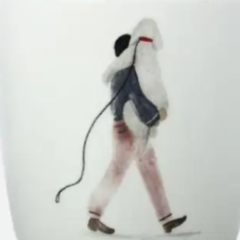Writing Tips Writing Tip: Adverbs And Adjectives ~ Helping Or Hurting
Happy Wednesday everyone! I hope everyone is having a great week so far. I was looking through the possible posts that I had for today and I decided that it's been a while since we had a grammar lesson. Wouldn't you know it, I actually had one sitting around, just waiting for an opportunity to be showcased in the blog! So, without further ado, here's today's writing tip, courtesy of Cia. Enjoy!
Adverbs and Adjectives ~ Helping or Hurting
by
Cia
Today I want to focus on ways adverbs and adjectives hurt writing instead of helping. How do we structure sentences to avoid unnecessary phrasing and descriptions, but still keep a story strong visually to the reader? One of the first things that came to mind when I considered this subject was the use of adverbs and adjectives. My personal view on writing is to keep my words from interfering with the story, and that usually requires keeping things as simple as possible.
First, for those who haven't had a grammar class in a while, I'll define them. Adverbs and Adjectives are words that describe or modify a noun, verb, adjective, or adverb. They're describing words.
But do we need them? Of course we do, to some extent. Describing words do have their place, like when you want to use an adjective to describe a noun. Will a reader 'see' a character better if I say they are wearing dirty jeans and a ripped hoodie than if I said they are wearing jeans and a hoodie? Yes. Dirty and ripped in the sentence describe the clothing and give the character a very different appearance than the reader might otherwise picture. If I need to show that my character is homeless, those two words go a long way in presenting my character.
When writing fiction, we try to create a picture for the readers. For that we need adverbs and adjectives. It is hard to write anything without them. Adding useless describing words is easy to do without realizing it, though. Take a look at my first paragraph. 'Unnecessary' 'first' 'personal' 'usually' are all describing words. The trick comes from deciding what type are useful and which ones are not. Are the adverbs and adjectives I used words necessary? Some are, but one I just pointed out is not. Can you find it?
Do I need unnecessary to describe phrasing and descriptions? Well, since I want to point out that they don't need to be used, sure. However, did I need 'personal' in front of view? If I take it out, you still see that it is 'my view', so you have to know that its personal, right? In that sentence personal is an adjective I could remove.
Those are subtle uses of describing words writers need to consider removing, especially when writing stories with word limits. Some are easy to spot, like icy cold, steaming hot, or running swiftly, transportation vehicle, alternative choices, etc... Others like my personal view, are not quite as easy to pick out but just as redundant. These should be eliminated as often as possible.
Another type of adverb to avoid are those that tend to spring up around verbs. Often, they are words like very, typically, carefully, always, just, often, etc... Most of the time, they're not necessary. Other times, they make a phrase clunky or wordy, when changing the verb would work.
Examples:
Redundant adverb:
She always gets a coffee at 3 PM every day or She gets a coffee at 3 PM every day.
If she gets the coffee every day at 3 pm, do we really need always there?
Redundant adjective:
The fundraiser was a complete and total failure or The fundraiser was a total failure.
We don't need both complete and total, as they mean the same thing.
Redundant adjective:
The noisy fan's constant squeaking drove her nuts or The fan's constant squeaking drove her nuts.
Do we need noisy to describe the fan when we then describe the noise it is making?
Verb changing adverb:
He reaches quickly for the falling stack of books or He lunges for the falling stack of books.
Here, a more descriptive verb for the movement eliminates the need to use the adverb.
Amused by her comment, he just gives her a smile or Amused by her comment, he smiles.
Using just gives really isn't necessary when you could change the action to smiles.
Both Adverbs and Adjectives:
He softly walks into the room, trying not to wake his sleeping wife or He tiptoes into the room, trying not to wake his wife.
Here, tiptoeing describes the walking and if he doesn't want to wake her she is obviously sleeping so that word can be removed.
-
 14
14






14 Comments
Recommended Comments
Create an account or sign in to comment
You need to be a member in order to leave a comment
Create an account
Sign up for a new account in our community. It's easy!
Register a new accountSign in
Already have an account? Sign in here.
Sign In Now